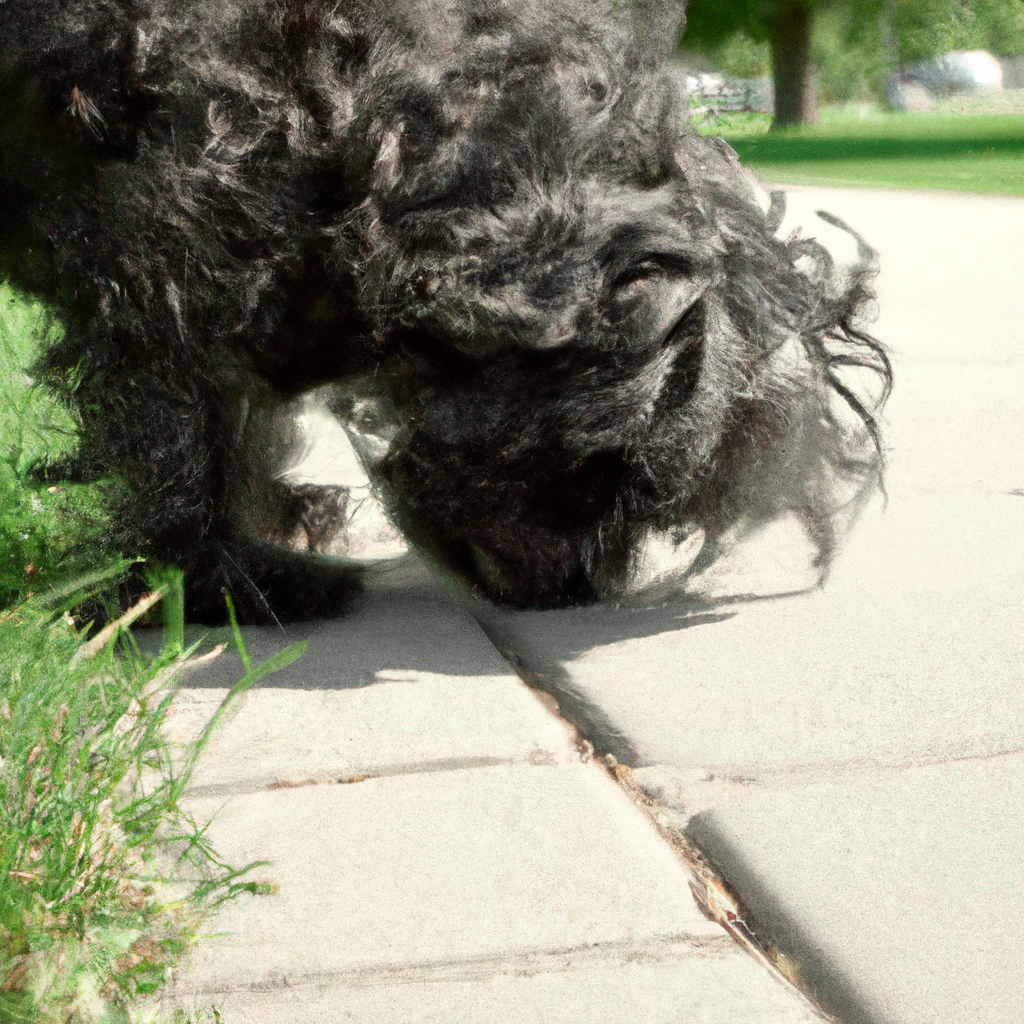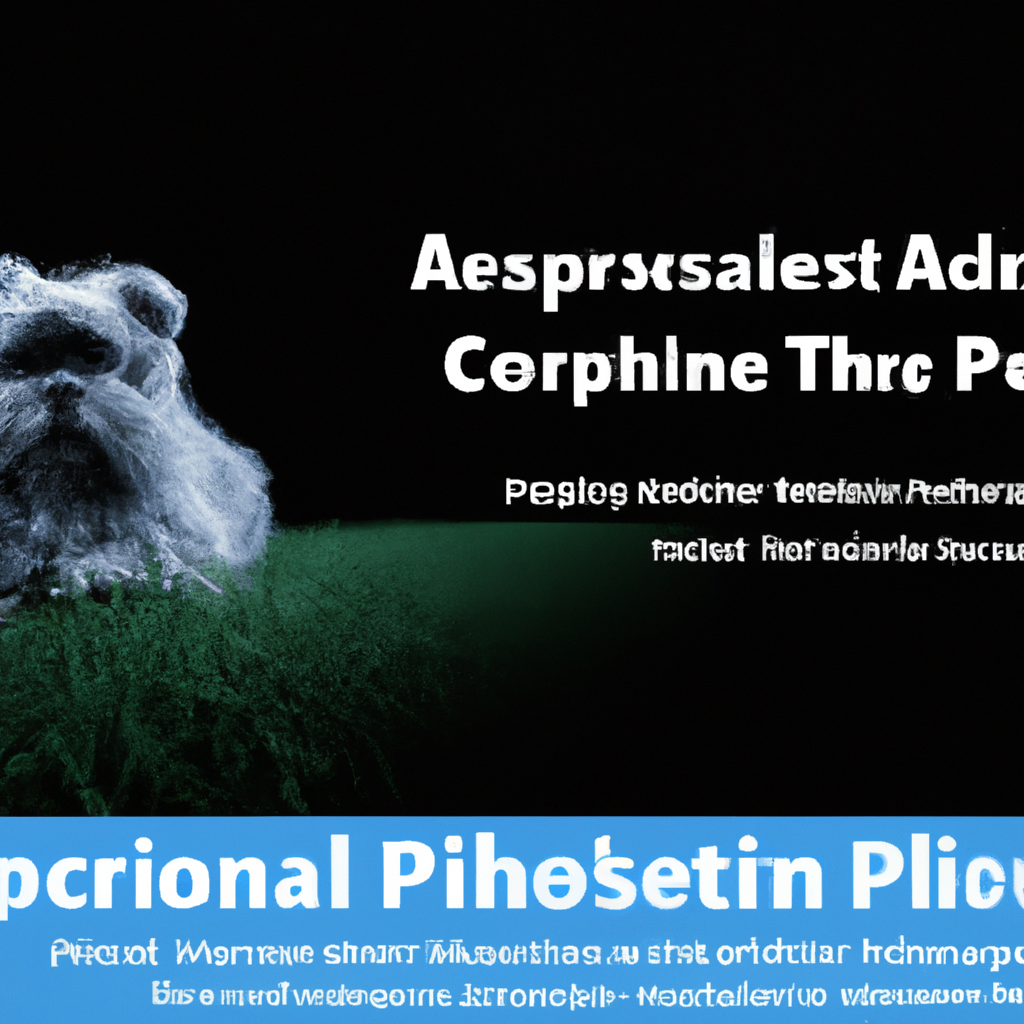Identifying common health problems in Affenpinscher dogs is crucial for maintaining their overall health and well-being. Affenpinschers, like any breed, are prone to certain genetic and environmental health issues. These can range from heart disorders and hip dysplasia to eye conditions and respiratory problems. Understanding these potential health risks allows owners to monitor their pet’s health effectively and seek timely veterinary care when needed.
Understanding the Common Health Problems in Affenpinschers
Affenpinschers, often referred to as “Monkey Terriers” due to their distinct primate-like appearance, are small but sturdy dogs known for their playful and adventurous nature. Despite their robust constitution, Affenpinschers, like any other breed, are prone to certain health issues. Understanding these common health problems can help you ensure your Affenpinscher lives a long, healthy, and happy life.
One of the most common health issues in Affenpinschers is hip dysplasia, a genetic condition that affects the hip joint. This condition occurs when the hip joint doesn’t develop properly, leading to a loose fit between the ball and socket. Over time, this can cause painful arthritis and may limit your dog’s mobility. Regular exercise and a balanced diet can help manage this condition, but in severe cases, surgery may be necessary.
Another common health problem in Affenpinschers is patellar luxation, or dislocated kneecap. This condition is often hereditary and can cause lameness in the affected leg. While mild cases can be managed with physical therapy and weight control, severe cases may require surgical intervention.
Affenpinschers are also prone to certain eye conditions, including cataracts and progressive retinal atrophy (PRA). Cataracts can cause cloudiness in the eye lens, leading to impaired vision or blindness. On the other hand, PRA is a degenerative eye disorder that gradually leads to blindness. Regular eye check-ups can help detect these conditions early, and treatments can slow their progression.
Heart disease, particularly heart murmurs and mitral valve disease, is another health concern in Affenpinschers. Heart murmurs are abnormal sounds during your dog’s heartbeat cycle, while mitral valve disease involves a malfunctioning heart valve. Both conditions can lead to heart failure if left untreated. Regular veterinary check-ups can help detect heart conditions early, and medication can manage symptoms and slow disease progression.
Affenpinschers are also susceptible to a condition known as brachycephalic syndrome due to their short noses and flat faces. This syndrome can cause breathing difficulties and may lead to more serious conditions like heat stroke. To manage this condition, avoid strenuous exercise during hot weather and consider using a harness instead of a collar to reduce pressure on your dog’s throat.
Lastly, like many small breeds, Affenpinschers are prone to dental problems. Their small mouths can lead to overcrowding of teeth, making them more susceptible to periodontal disease. Regular teeth cleaning, either at home or by a professional, can help prevent dental issues.
While this list may seem daunting, it’s important to remember that not all Affenpinschers will suffer from these health problems. Regular veterinary care, a balanced diet, and plenty of exercise can go a long way in keeping your Affenpinscher healthy. Moreover, if you’re considering getting an Affenpinscher from a breeder, ensure they conduct health screenings to reduce the risk of inherited conditions.
In conclusion, while Affenpinschers are prone to certain health issues, understanding these problems and taking preventative measures can help ensure your furry friend leads a healthy and happy life. After all, a little knowledge and proactive care can go a long way in safeguarding your pet’s health.
Affenpinscher Health: A Closer Look at Hip Dysplasia
The Affenpinscher, also known as the “Monkey Terrier,” is a small but feisty breed known for its distinctive, almost human-like face and playful personality. While these dogs are generally healthy, they are prone to certain health conditions, one of which is hip dysplasia. This condition is a common concern among many dog breeds, but it’s particularly prevalent in Affenpinschers.
Hip dysplasia is a genetic disorder that affects the hip joint. It occurs when the ball and socket of the hip joint do not fit together properly, causing the joint to become unstable. This instability can lead to painful arthritis and, in severe cases, lameness. It’s a degenerative condition, meaning it worsens over time, and it can significantly impact a dog’s quality of life.
Affenpinschers are predisposed to hip dysplasia due to their genetic makeup. The condition is hereditary, passed down from generation to generation. However, environmental factors such as diet, exercise, and weight can also contribute to the development of hip dysplasia. Overweight dogs, for instance, are at a higher risk because the excess weight puts additional strain on the joints.
Early detection of hip dysplasia is crucial in managing the condition and preventing further damage. As an Affenpinscher owner, it’s important to be aware of the signs and symptoms. These may include difficulty standing up or climbing stairs, decreased activity, loss of thigh muscle mass, and a noticeable change in gait, such as a “bunny hopping” movement. If you notice any of these signs in your Affenpinscher, it’s advisable to consult with a veterinarian as soon as possible.
Diagnosis of hip dysplasia is typically confirmed through X-rays. Your vet may also perform a physical examination to assess your dog’s range of motion and check for signs of discomfort or pain. Once diagnosed, treatment options can be discussed. These may range from lifestyle modifications such as diet and exercise changes to medication for pain relief, and in severe cases, surgery may be recommended.
While hip dysplasia is a serious condition, it’s important to remember that it’s not a death sentence. Many dogs with hip dysplasia live full, happy lives with the right management and care. Regular vet check-ups, a balanced diet, and appropriate exercise can go a long way in maintaining your Affenpinscher’s overall health and managing conditions like hip dysplasia.
Moreover, if you’re considering adding an Affenpinscher to your family, it’s advisable to choose a reputable breeder who tests their breeding dogs for hip dysplasia. This can help reduce the risk of the condition in puppies.
In conclusion, while hip dysplasia is a common health problem in Affenpinschers, awareness and early detection can make a significant difference. By understanding the signs and knowing what to do, you can ensure your Affenpinscher leads a comfortable and happy life. After all, these charming little dogs with their mischievous personalities and loving nature deserve nothing less.
Identifying Heart Disease in Affenpinschers
Affenpinschers, also known as “Monkey Terriers,” are small, sturdy dogs known for their distinctive, almost human-like facial expressions. These charming little dogs are generally healthy, but like all breeds, they can be prone to certain health conditions. One of the most serious health issues that can affect Affenpinschers is heart disease.
Heart disease in Affenpinschers can take several forms, but the most common is a condition known as mitral valve disease. This condition occurs when the mitral valve, which separates the left atrium and ventricle in the heart, begins to deteriorate. As the valve weakens, it can cause blood to flow backward into the atrium, leading to a variety of symptoms and potentially serious complications.
Identifying heart disease in Affenpinschers can be challenging, as the early stages of the disease often present no noticeable symptoms. However, as the disease progresses, Affenpinschers may begin to show signs such as coughing, difficulty breathing, fatigue, and a decreased appetite. In some cases, a heart murmur may also be detected during a routine veterinary examination.
If you notice any of these symptoms in your Affenpinscher, it’s important to seek veterinary care as soon as possible. Your vet can perform a variety of tests to diagnose heart disease, including blood tests, x-rays, and an echocardiogram, which uses sound waves to create a detailed image of the heart.
Once diagnosed, treatment for heart disease in Affenpinschers typically involves medication to help manage symptoms and slow the progression of the disease. In some cases, surgery may be recommended to repair or replace the damaged valve.
While heart disease can be a serious concern for Affenpinscher owners, there are steps you can take to help reduce your dog’s risk. Regular veterinary check-ups are crucial, as they can help catch heart disease in its early stages, when treatment is most effective. A healthy diet and regular exercise can also play a key role in maintaining your Affenpinscher’s heart health.
In addition to these preventative measures, it’s also important to be aware of your Affenpinscher’s genetic risk. Some lines of Affenpinschers are more prone to heart disease than others, so if you’re considering adding an Affenpinscher to your family, be sure to ask the breeder about the dog’s family health history.
In conclusion, while heart disease is a serious health concern for Affenpinschers, with early detection and proper care, many dogs with this condition can go on to live long, happy lives. By being aware of the signs of heart disease and taking steps to maintain your Affenpinscher’s overall health, you can help ensure that your furry friend stays by your side for many years to come. Remember, your vet is your best resource when it comes to your Affenpinscher’s health, so don’t hesitate to reach out if you have any concerns.
Patellar Luxation: A Common Affenpinscher Health Issue

The Affenpinscher, also known as the “Monkey Terrier” due to its primate-like appearance and playful nature, is a small but sturdy dog breed that originated in Germany. Despite their small size, these dogs are known for their fearless and protective nature. However, like all breeds, Affenpinschers are prone to certain health conditions. One of the most common health issues that Affenpinschers face is Patellar Luxation.
Patellar Luxation, also known as “slipped stifles,” is a common condition in small dogs. It’s a condition where the dog’s kneecap (patella) dislocates or moves out of its normal location. This can cause the dog to experience discomfort, pain, and difficulty walking. In severe cases, it can even lead to lameness.
The condition is usually congenital, meaning it’s present at birth, although the actual misalignment often doesn’t occur until much later. The hereditary nature of this condition means that it’s particularly prevalent in certain breeds, including the Affenpinscher.
The symptoms of Patellar Luxation can vary depending on the severity of the condition. In mild cases, the dog may occasionally lift a hind leg while running or walking, or they may skip or hop for a few steps. In more severe cases, the dog may show signs of persistent lameness in the affected leg, or they may struggle to walk at all.
If you notice any of these symptoms in your Affenpinscher, it’s important to consult with a vet as soon as possible. The vet will likely perform a physical examination to confirm the diagnosis, and they may also recommend X-rays to assess the severity of the condition.
Treatment for Patellar Luxation can vary depending on the severity of the condition. In mild cases, the vet may recommend a conservative approach, which can include pain management and physical therapy. This can help to strengthen the muscles around the knee joint and improve the dog’s overall mobility.
In more severe cases, surgery may be necessary to realign the kneecap and prevent further damage to the joint. The surgery is generally successful, and most dogs are able to return to their normal activities after a period of recovery.
Prevention is always better than cure, and there are steps that Affenpinscher owners can take to reduce the risk of Patellar Luxation. Regular exercise can help to keep the dog’s muscles strong and healthy, which can help to support the knee joint. A balanced diet can also help to maintain a healthy weight, as obesity can put extra strain on the joints and increase the risk of Patellar Luxation.
In conclusion, while Patellar Luxation is a common health issue in Affenpinschers, it’s a condition that can be managed with the right care and treatment. By being aware of the symptoms and taking preventative measures, Affenpinscher owners can help to ensure that their furry friends stay happy and healthy. After all, these little dogs with big personalities deserve nothing but the best.
Affenpinscher and Eye Problems: What You Need to Know
Affenpinschers, affectionately known as “Monkey Dogs,” are a small breed of dog that originated in Germany. These adorable, energetic, and loyal companions are known for their distinctive appearance, which includes a shaggy coat and a face that resembles a monkey, hence the nickname. However, like all breeds, Affenpinschers are prone to certain health issues, particularly eye problems. As a responsible pet owner, it’s crucial to understand these potential health concerns to ensure your furry friend lives a long, healthy, and happy life.
One of the most common eye problems that Affenpinschers face is cataracts. This condition is characterized by a cloudiness in the lens of the eye, which can lead to decreased vision and, in severe cases, blindness. Cataracts can be caused by a variety of factors, including age, diabetes, and trauma. If you notice that your Affenpinscher’s eyes are becoming cloudy or if they seem to be having trouble seeing, it’s important to take them to the vet as soon as possible. While cataracts can’t be prevented, they can be treated with surgery to restore vision.
Another eye condition that Affenpinschers are prone to is Progressive Retinal Atrophy (PRA). This is a group of genetic diseases that cause the retina to deteriorate over time, leading to eventual blindness. Symptoms of PRA can include night blindness and a gradual loss of peripheral vision. Unfortunately, there is currently no cure for PRA, but early detection can help manage the condition and slow its progression. Regular eye exams are crucial for catching PRA early, so make sure your Affenpinscher gets checked regularly.
Glaucoma is another eye condition that can affect Affenpinschers. This disease is caused by increased pressure in the eye, which can damage the optic nerve and lead to vision loss if left untreated. Symptoms of glaucoma can include redness, pain, and excessive tearing. If you notice any of these signs in your Affenpinscher, it’s important to seek veterinary care immediately. Glaucoma can be managed with medication or surgery, but early detection is key to preserving your dog’s vision.
Corneal ulcers are also a common eye problem in Affenpinschers. These are sores on the cornea, the clear outer layer of the eye. They can be caused by trauma, infection, or a lack of tear production. Symptoms can include redness, squinting, and a visible sore on the eye. Corneal ulcers can be very painful, so if you suspect your Affenpinscher has one, it’s important to get them to the vet right away. Treatment typically involves medication and sometimes surgery.
In conclusion, while Affenpinschers are a generally healthy breed, they are prone to certain eye conditions. Regular veterinary check-ups and eye exams are crucial for early detection and treatment of these issues. As a pet owner, it’s also important to be aware of the signs and symptoms of these conditions so you can seek help for your Affenpinscher as soon as possible. Remember, your furry friend relies on you to help them stay healthy and happy. So, keep an eye out for any changes in their eyes, and don’t hesitate to seek veterinary care if something seems amiss.
The Prevalence of Dental Diseases in Affenpinschers
Affenpinschers, affectionately known as “Monkey Dogs,” are a small breed of dog that originated in Germany. These dogs are known for their playful and adventurous nature, making them a popular choice for families and individuals alike. However, like any breed, Affenpinschers are prone to certain health issues. One of the most common health problems that plague this breed is dental disease.
Dental disease in Affenpinschers is prevalent due to their small size and the structure of their mouths. Their compact jaws often lead to overcrowding of teeth, making it difficult for them to maintain proper oral hygiene. This, in turn, can lead to the buildup of plaque and tartar, which are the primary causes of dental disease.
The first sign of dental disease in Affenpinschers is usually bad breath. While it’s normal for dogs to have a certain level of ‘doggy breath,’ a sudden change or intensification of their breath’s odor could be a sign of dental disease. Other symptoms include difficulty eating, excessive drooling, and a noticeable change in their behavior. If your Affenpinscher shows any of these signs, it’s crucial to consult with a veterinarian as soon as possible.
Dental disease in Affenpinschers, if left untreated, can lead to more serious health problems. The bacteria from the plaque and tartar can enter the bloodstream and affect the heart, kidneys, and liver. This can lead to life-threatening conditions such as heart disease and kidney failure. Therefore, it’s essential to take dental disease seriously and seek treatment promptly.
Prevention is always better than cure, especially when it comes to dental disease in Affenpinschers. Regular brushing of your dog’s teeth can significantly reduce the risk of dental disease. It’s recommended to brush your Affenpinscher’s teeth at least two to three times a week, although daily brushing is ideal. Using dog-specific toothpaste is crucial as human toothpaste can be harmful to dogs.
In addition to brushing, providing your Affenpinscher with dental chews can also help maintain their oral health. These chews are designed to clean the teeth as the dog chews, helping to remove plaque and tartar. However, it’s important to remember that dental chews are not a substitute for brushing and regular veterinary check-ups.
Regular veterinary check-ups are essential in preventing and detecting dental disease in Affenpinschers. Your vet can perform a thorough oral examination and professional cleaning, which can help catch any early signs of dental disease. They can also provide advice on the best dental care practices for your Affenpinscher.
In conclusion, while Affenpinschers are prone to dental disease due to their small size and mouth structure, there are steps that owners can take to prevent this. Regular brushing, the use of dental chews, and regular veterinary check-ups can significantly reduce the risk of dental disease. Remember, a healthy mouth contributes to a healthy dog, so don’t overlook the importance of dental care in your Affenpinscher’s overall health.
Skin Conditions in Affenpinschers: An Overview
Affenpinschers, affectionately known as “Monkey Dogs,” are a small breed of dog that originated in Germany. These dogs are known for their distinctive, scruffy appearance and their lively, confident personalities. However, like all breeds, Affenpinschers are prone to certain health conditions, particularly skin conditions. Understanding these common health problems can help Affenpinscher owners provide the best possible care for their furry friends.
One of the most common skin conditions in Affenpinschers is atopic dermatitis. This is a type of allergic skin disease that can cause a range of symptoms, including itching, redness, and inflammation. Affenpinschers with atopic dermatitis may scratch or lick their skin excessively, leading to further irritation and potential skin infections. This condition is often triggered by environmental allergens such as pollen, dust mites, or mold spores. Therefore, it’s crucial to keep your Affenpinscher’s living environment clean and free from these allergens as much as possible.
Another skin condition that can affect Affenpinschers is seborrhea. This condition causes the skin to produce too much oil, leading to greasy skin and dandruff. In some cases, seborrhea can also cause the skin to become red and inflamed. Seborrhea can be a primary condition, meaning it occurs on its own, or it can be secondary to another condition such as allergies or hormonal imbalances. Regular grooming and bathing with a medicated shampoo can help manage the symptoms of seborrhea.
Affenpinschers can also be prone to skin infections, both bacterial and fungal. These infections can cause a variety of symptoms, including redness, swelling, itching, and discomfort. In some cases, skin infections can also cause hair loss. Bacterial infections are often treated with antibiotics, while fungal infections typically require antifungal medications. Regular check-ups with a vet can help catch these infections early before they become more serious.
Skin tumors are another health concern for Affenpinschers. While many skin tumors in dogs are benign, or non-cancerous, some can be malignant, or cancerous. Regular vet check-ups are crucial for early detection and treatment of skin tumors. If a tumor is found, your vet may recommend a biopsy to determine whether it is benign or malignant.
Lastly, Affenpinschers can also suffer from a condition called acanthosis nigricans, a skin disorder that causes dark, thickened patches of skin. This condition is often associated with hormonal imbalances or underlying health conditions such as obesity or diabetes. Treatment typically involves addressing the underlying cause and managing symptoms with topical creams or ointments.
In conclusion, while Affenpinschers are generally a healthy breed, they can be prone to a variety of skin conditions. Regular vet check-ups, a healthy diet, and good grooming practices can go a long way in preventing and managing these conditions. If you notice any changes in your Affenpinscher’s skin, such as redness, itching, or unusual lumps or bumps, it’s important to seek veterinary care as soon as possible. With the right care and attention, your Affenpinscher can live a happy, healthy life.
Affenpinscher Health: Dealing with Legg-Calve-Perthes Disease
The Affenpinscher, also known as the “Monkey Terrier,” is a small but feisty breed known for its distinctive, almost human-like face and playful personality. While these dogs are generally healthy, they are prone to certain health conditions, one of which is Legg-Calve-Perthes Disease. Understanding this condition and how it affects your Affenpinscher can help you provide the best care for your furry friend.
Legg-Calve-Perthes Disease, or LCPD, is a condition that primarily affects small breed dogs. It’s a degenerative disease that results in the collapse of the hip joint. This happens when the blood supply to the femur, the large bone in the dog’s leg, is reduced. The lack of blood causes the bone to die and eventually collapse, leading to arthritis or inflammation of the hip joint.
Now, you might be wondering, how can you tell if your Affenpinscher has LCPD? The most common sign is limping or lameness in one of the hind legs. Your dog might also show signs of pain or discomfort when the leg is moved or touched. As the disease progresses, muscle mass in the affected leg may decrease due to lack of use.
If you notice any of these symptoms, it’s crucial to consult with a veterinarian as soon as possible. They will likely perform a physical examination and may recommend X-rays to confirm the diagnosis. Early detection is key in managing LCPD, as it can help prevent further damage to the hip joint and reduce pain for your pet.
Once diagnosed, treatment for LCPD typically involves surgery to remove the diseased bone and cartilage. This procedure, known as femoral head ostectomy (FHO), can significantly improve your dog’s quality of life by eliminating pain and restoring mobility. Post-surgery, your Affenpinscher will likely need physical therapy to regain strength and function in the affected leg.
While dealing with LCPD can be challenging, it’s important to remember that your Affenpinscher can still lead a happy and fulfilling life with the right care and treatment. Regular vet check-ups, a balanced diet, and moderate exercise can help maintain your dog’s overall health and well-being.
In addition to this, genetic testing can be a valuable tool in identifying Affenpinscher common health problems like LCPD. This can provide you with crucial information about your dog’s health, allowing you to take proactive steps to manage potential health issues.
In conclusion, while Legg-Calve-Perthes Disease is a common health problem in Affenpinschers, it’s not a death sentence. With early detection, appropriate treatment, and dedicated care, your Affenpinscher can overcome this challenge and continue to bring joy and companionship into your life. Remember, your furry friend relies on you for their health and happiness, so stay vigilant and proactive in their care.In conclusion, Affenpinscher dogs are generally healthy but they are prone to certain health conditions. These include hip dysplasia, heart defects, respiratory issues, vision problems such as cataracts and progressive retinal atrophy, and dental issues due to their small mouth size. Regular veterinary check-ups and a balanced diet can help manage these common health problems and ensure the dog’s well-being.





